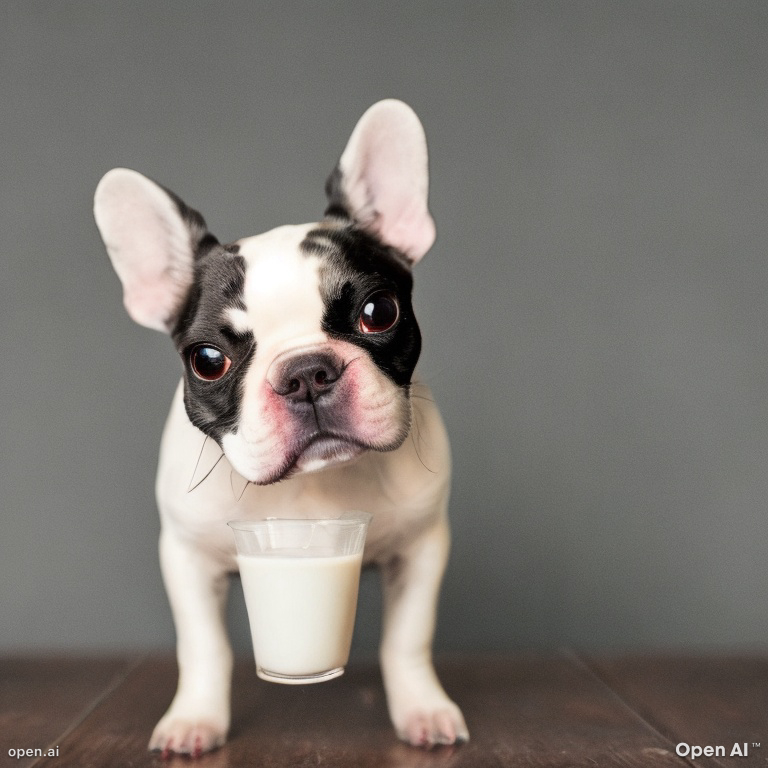Dogs and dairy products have been a topic of debate among pet owners for years. While some believe that dogs can safely consume milk and other dairy products, others argue that dogs are lactose intolerant and should not consume any dairy at all. In this article, we will explore the question: Are dogs lactose intolerant? Let’s delve into the facts and shed some light on this matter.
Table of Contents
Understanding Lactose Intolerance
Before addressing whether or not the question are dogs lactose intolerant? it’s important to understand what lactose intolerance actually means. Lactose is a sugar found in milk and other dairy products. In order for lactose to be properly digested, the body produces an enzyme called lactase. Lactase breaks down lactose into simple sugars that can be easily absorbed by the body.
Lactose intolerance occurs when the body produces insufficient amounts of lactase, leading to difficulty in digesting lactose. This can result in various gastrointestinal symptoms such as bloating, gas, diarrhea, and even stomach cramps. While lactose intolerance is common in humans, the question arises: Does the same apply to dogs?
The Digestive System of Dogs
To determine whether dogs are lactose intolerant, we must first examine their digestive system. Unlike humans, dogs have shorter digestive tracts, designed for the consumption of a primarily meat-based diet. Their digestive systems produce different enzymes compared to humans, including lactase.
While it is true that puppies produce lactase to facilitate the digestion of their mother’s milk, the production of lactase tends to decrease as they mature. This decrease in lactase production is a natural occurrence in most mammals, as they transition from a milk-based diet to solid foods.
The shorter digestive tract in dogs indicates that their bodies are not designed to efficiently break down lactose. While they may produce some amount of lactase, it is generally accepted that their production significantly decreases as they reach adulthood. This is why many experts believe that dogs are lactose intolerant to some degree.
Lactose Intolerance in Dogs
When dogs consume dairy products containing lactose, their bodies may struggle to break down this sugar effectively. As a result, dogs can experience digestive issues similar to those in lactose-intolerant humans. These symptoms may include diarrhea, bloating, gas, and discomfort.
It is important for dog owners to be aware of the potential consequences of feeding their dogs dairy products. While some dogs may have a higher tolerance for lactose and experience minimal or no adverse effects, others may exhibit severe symptoms of lactose intolerance. Monitoring your dog’s tolerance and any possible reactions closely is crucial to their well-being.
Factors to Consider – Are Dogs Lactose Intolerant?
While it is generally agreed that dogs are lactose intolerant, it is essential to consider a few key factors before completely dismissing dairy products from their diet:
1. Individual Tolerance
Just like humans, the level of lactose intolerance can vary from dog to dog. Some dogs may have a higher tolerance for lactose and experience minimal or no adverse effects when consuming dairy. However, it is important to monitor their tolerance and any possible reactions closely.
It is recommended to introduce dairy products gradually and observe any changes in your dog’s digestive system. If you notice symptoms of lactose intolerance, such as diarrhea or bloating, it may be best to avoid dairy altogether. Consulting with a veterinarian can provide further guidance on your dog’s individual tolerance.
2. Fermentation Process
Certain dairy products, such as yogurt and kefir, undergo a fermentation process that reduces the lactose content. These products may be better tolerated by dogs with a lower lactose tolerance. The fermentation process breaks down lactose into simpler sugars, making them easier for dogs to digest.
When considering dairy options for your dog, opt for small amounts of fermented products and observe their reaction. Monitor for any adverse effects such as gastrointestinal discomfort or changes in stool consistency. Gradually increasing the amount of fermented dairy can help determine whether your dog can tolerate lactose to some degree.
3. Moderation is Key
If you choose to give your dog dairy products, it is crucial to do so in moderation. Large quantities of dairy can overload the digestive system and lead to gastrointestinal problems. Always remember that dogs have specific dietary needs, and their overall nutrition should not rely heavily on dairy products.
A balanced diet for dogs should primarily consist of high-quality protein sources, healthy fats, and appropriate carbohydrates. Dairy should only be considered as an occasional treat, and other nutrient-rich alternatives should be incorporated into their diet.
Alternatives to Dairy
If you have concerns about the lactose content in dairy or your dog shows signs of lactose intolerance, there are various alternatives available to provide the necessary nutrients:
1. Plant-Based Milk Substitutes
Plant-based milk substitutes, such as almond milk, coconut milk, or oat milk, can be given to dogs as long as they do not contain any additives, sweeteners, or xylitol, which can be harmful to dogs. These alternatives provide a lactose-free option and can be used in small quantities as part of a balanced diet for dogs.
It is important to note that plant-based milk substitutes should not replace a balanced and appropriate dog diet. They can be used as a supplement or occasional addition to provide some variety in taste and texture.
2. Lactose-Free Products
Several lactose-free dairy products are available in the market specifically formulated for dogs. These products are treated with the enzyme lactase, which breaks down lactose into easily digestible sugars. They can be a suitable alternative for dogs with lactose intolerance, providing the taste of dairy without the unpleasant side effects.
Lactose-free products offer a convenient and safe option for dog owners who wish to include dairy in their pet’s diet. These products undergo a process that removes or breaks down lactose, making them more easily digestible for dogs.
Conclusion
While dogs may not be able to digest lactose as efficiently as humans, the degree of lactose intolerance can vary among individuals. It is generally recommended to avoid feeding dogs large quantities of dairy products, especially if they show symptoms of lactose intolerance. Monitoring your dog’s tolerance and opting for lactose-free alternatives or moderate amounts of fermented dairy products can be a safer approach.
As always, it is crucial to consult with a veterinarian before making any significant changes to your dog’s diet, especially if you suspect lactose intolerance or have specific concerns about their digestive health. Prioritizing your dog’s overall well-being and providing a balanced diet will ensure they live a healthy and happy life.
FAQ
Q: Are dogs lactose intolerant?
A: Yes, dogs are generally lactose intolerant to some degree. Their bodies are not designed to efficiently break down lactose, which can lead to digestive issues.
Q: Can dogs consume dairy products?
A: Some dogs may have a higher tolerance for lactose and experience minimal or no adverse effects when consuming dairy. However, it is important to monitor their tolerance and any possible reactions closely.
Q: What are the symptoms of lactose intolerance in dogs?
A: Dogs with lactose intolerance may experience symptoms such as diarrhea, bloating, gas, and discomfort after consuming dairy products.
Q: What are some alternatives to dairy for dogs?
A: Plant-based milk substitutes like almond milk, coconut milk, or oat milk can be given to dogs as long as they do not contain any harmful additives. Lactose-free dairy products specifically formulated for dogs are also available.

